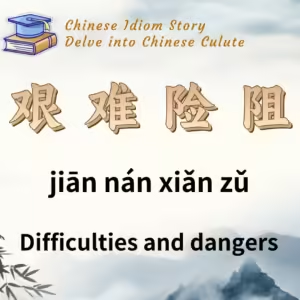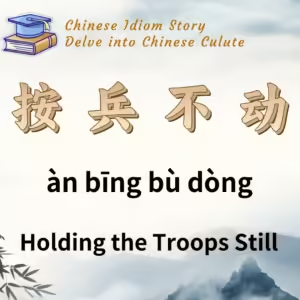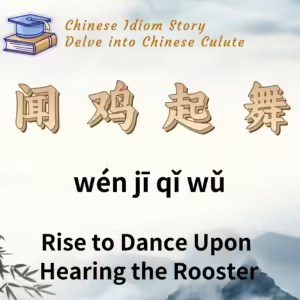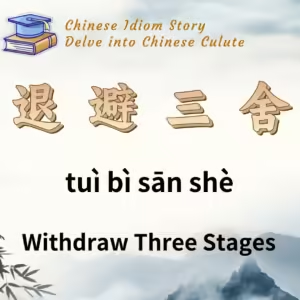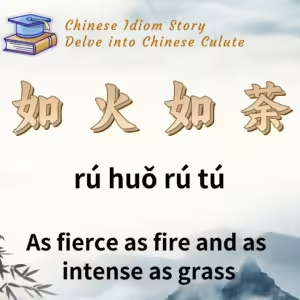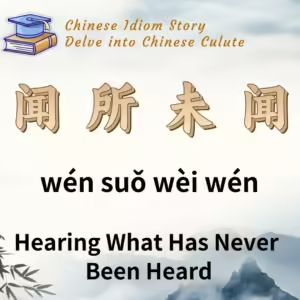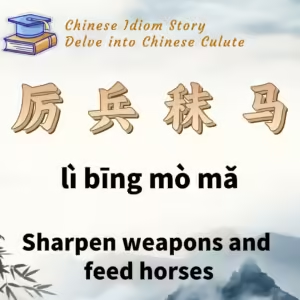
Chinese Idiom: 厉兵秣马 (Li Bing Mo Ma)
English Translation: Sharpen weapons and feed horses
pīn yīn: lì bīng mò mǎ
Idiom Meaning: This idiom describes the act of making thorough preparations, especially for a battle or major endeavor. It can also be used more broadly to signify careful and diligent preparation for any task.
Historical Source: 《左传·僖公三十三年》 (The Zuo Commentary on the Spring and Autumn Annals, 33rd Year of Duke Xi).
Idiom Story:
During the Spring and Autumn Period, the state of Jin, under Duke Wen, sought to assert dominance in the Central Plains. In 630 BC, Duke Wen of Jin allied with the state of Qin to attack Zheng. The Qin army positioned themselves to the east of Zheng, while Jin’s forces took the northern approach.
Zheng, caught between two powerful adversaries, faced grave danger. Zheng’s ruler, Duke Wen of Zheng, sent an envoy to Qin’s ruler, Duke Mu, to negotiate peace. Duke Mu agreed to a separate treaty with Zheng and withdrew most of his forces, leaving only a small contingent led by Qi Zi to garrison the northern gate of Zheng.
Two years later, Zheng’s ruler Duke Wen passed away, and his son, Duke Mu of Zheng, came to power with the aid of Jin. In gratitude to Jin for their support, Duke Mu distanced Zheng from Qin. However, Qi Zi and others, displeased with this shift, conspired to secretly attack Zheng.
In 627 BC, Qin’s Duke Mu sent Meng Ming to lead 300 chariots toward Zheng. On their way, they encountered Xian Gao, a merchant from Zheng, who cleverly disguised himself as a messenger with gifts and sent word back to Zheng. Duke Mu of Zheng, alerted to the impending danger, discovered that the Qin troops had already prepared thoroughly. They had sharpened their weapons and fed their horses, showing they were ready for action.
Duke Mu, realizing the imminent threat but not wanting to provoke a confrontation, diplomatically urged the Qin troops to leave, saying that Zheng could no longer provide for them. The Qin forces, understanding they had been discovered, retreated hastily.
The phrase “厉兵秣马” (sharpen weapons and feed horses) emerged from this story, symbolizing meticulous preparation and readiness for action.

